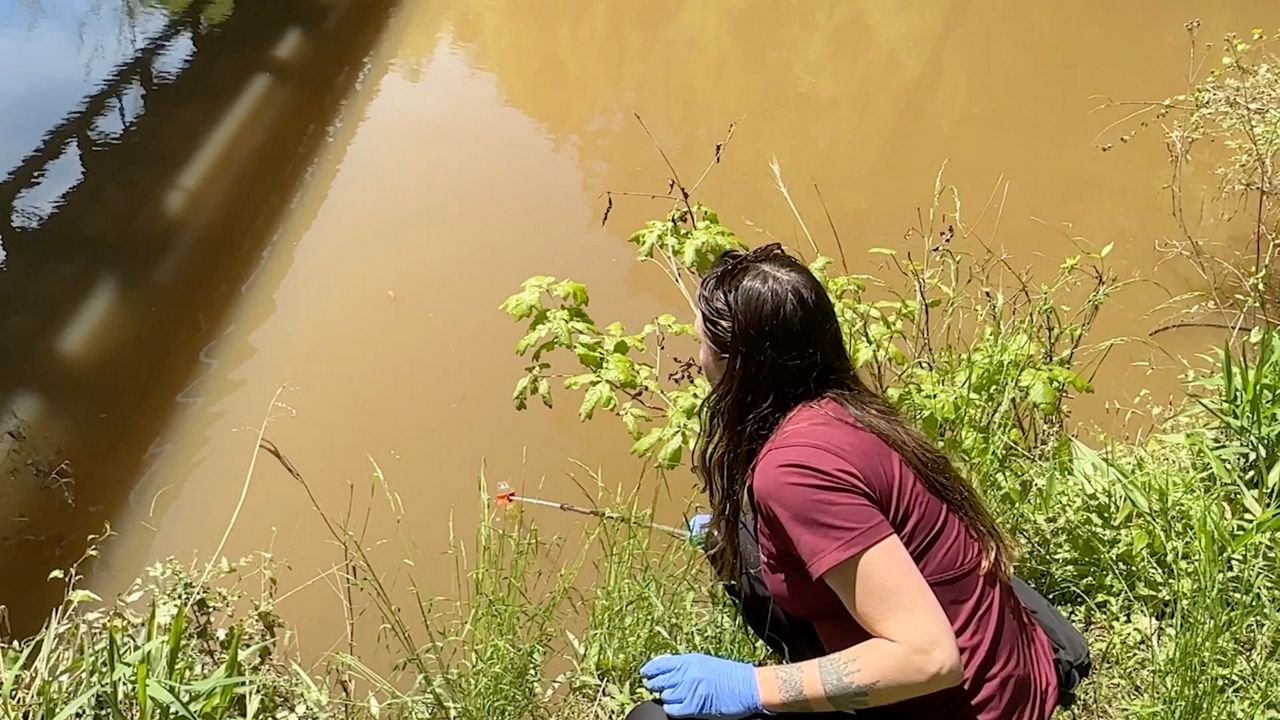RALEIGH, N.C. — Raleigh City Council is considering changes to its stormwater ordinance.
The new guidelines would help development projects to be more river friendly.
Samantha Krop, the Neuse riverkeeper, has been an environmental activist since she was 17, and she says the changes are important.
She says that the rapid growth of the Triangle makes Raleigh’s new stormwater ordinance even more important. It’s part of her job as a riverkeeper to keep tabs on waterways — especially when they’re dealing with stormwater.
“The pollution we detect all the time from stormwater issues aren't being dealt with properly,” Krop said. “Essentially, you can see with your eyes the litter that ends up in our waterways. Behind me is Crabtree Creek. This creek actually drains a huge section of northern Raleigh, which means that every drop of water that hits this part of the watershed, if it's not turned into groundwater, it goes back into this creek with everything that it takes with it.”
Krop says when stormwater comes through, it ideally gets absorbed into the ground or evaporated into the sky. However, more often it gets washed into waterways and takes litter, bacteria, excess nutrients and harmful chemicals with it.
Krop’s fieldwork often includes collecting samples to test the water quality.

“When we talk about stormwater in the realm of water quality,” Krop said. “What we're talking about is making sure that we can prevent stormwater from picking up all of the pollutants and running into our waterways by intercepting that process.”
The city of Raleigh is working on ways to do that through changes to its stormwater ordinance to encourage stormwater mitigation on development sites to help cut off pollution at the source.
“I think this is a really fantastic move for the city of Raleigh in the right direction as we're continuing to develop and grow,” Krop said. “This is a way that we're thinking more responsibly.”
Krop says there are many ways developers can limit stormwater runoff, but seeing Raleigh being a responsible steward is a great first step. Some options include floodplains, permeable pavement, rain gardens or cisterns.
Krop says the best way is to support nature by keeping the ground as green as possible.



